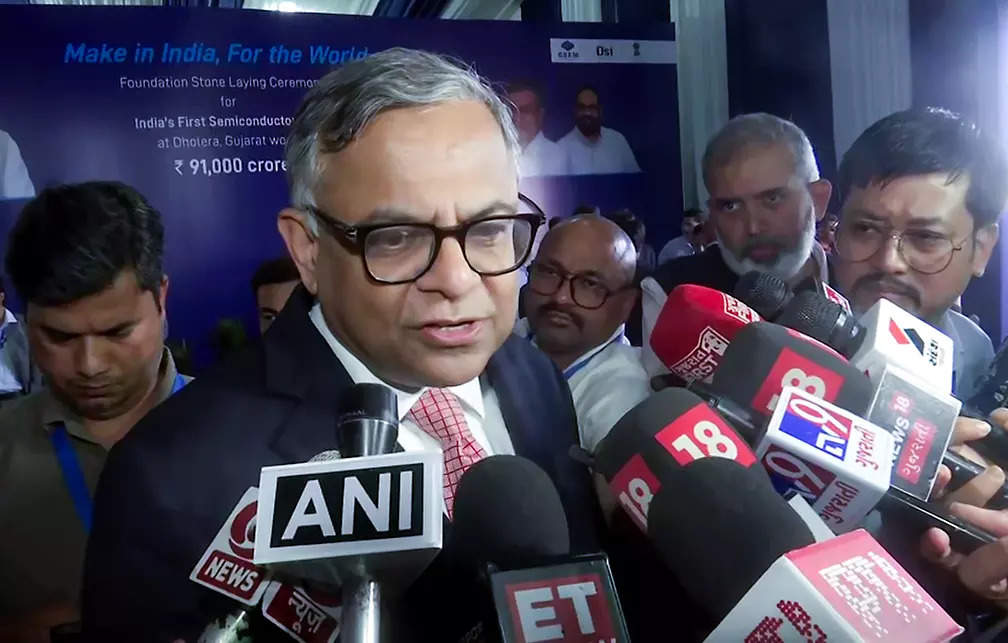India playing crucial role in advanced manufacturing: N Chandrasekaran

In a communication addressed to shareholders of the tech major, Tata Sons Chairman N. Chandrasekaran, who also serves as TCS chairman, highlighted that ongoing geopolitical challenges are reshaping traditional supply chains. He noted that companies are adjusting their supply chains to achieve a balance between resilience and efficiency. Additionally, Chandrasekaran emphasized the emergence of new global supply chain ecosystems, with India assuming a significant position in advanced manufacturing.
Chandrasekaran noted that the global landscape is experiencing notable transformations. The aftermath of the pandemic led to supply chain disruptions, followed by an economic downturn, particularly in developed nations. Despite initial signs of recovery, ongoing military conflicts this year have heightened, further affecting global supply chains.
In his letter, Chandrasekaran mentioned that after a two-year period marked by concerns over recession, sustained inflation, and significant monetary tightening, the global macroeconomic outlook is showing signs of improvement. This includes better growth prospects, decreasing inflation, and a potential shift towards monetary easing. He highlighted that several overarching trends are influencing the priorities of businesses worldwide, including artificial intelligence, renewable energy, supply chain optimization, and talent management.
Chandrasekaran emphasized that the emergence of GenAI would have a profound impact on nearly every sector and country in the foreseeable future. He noted that enterprises have already made substantial investments in cloud computing, data infrastructure, and powerful processing capabilities, which will facilitate the adoption of AI and GenAI technologies. Furthermore, Chandrasekaran highlighted that GenAI has the potential not only to enhance productivity but also to generate unprecedented and previously unforeseen impacts.
In the fiscal year 2024, TCS CEO K Krithivasan received a compensation of Rs 25.3 crore, positioning him as one of the lower-paid CEOs among his counterparts in the Indian IT sector. His predecessor, Rajesh Gopinathan, received a total remuneration of Rs 29.2 crore for FY23. Comparatively, Infosys CEO Salil Parekh and Wipro‘s new CEO Srini Pallia earned Rs 56 crore and Rs 50 crore respectively. TCS COO N Ganapathy Subramaniam, who is retiring in May, received a remuneration of Rs 26 crore in FY24—an increase of 8.2% compared to the previous year. Additionally, the median remuneration of employees at TCS saw a 10.8% increase in the financial year 2023-24.The average annual salary increase ranged from 5.5% to 8%, with top performers in India receiving double-digit raises. However, in the last fiscal year, the total increase, including promotions and other event-based compensation adjustments, was between 7% and 9%. Employees outside India saw wage hikes ranging from 1.5% to 6%. Overall, TCS has a workforce of over 600,000 employees. The company successfully completed its fifth buyback program, distributing Rs 17,000 crore to shareholders. In FY24, TCS achieved its largest shareholder payout to date, totaling Rs 47,445 crore.
Source link





